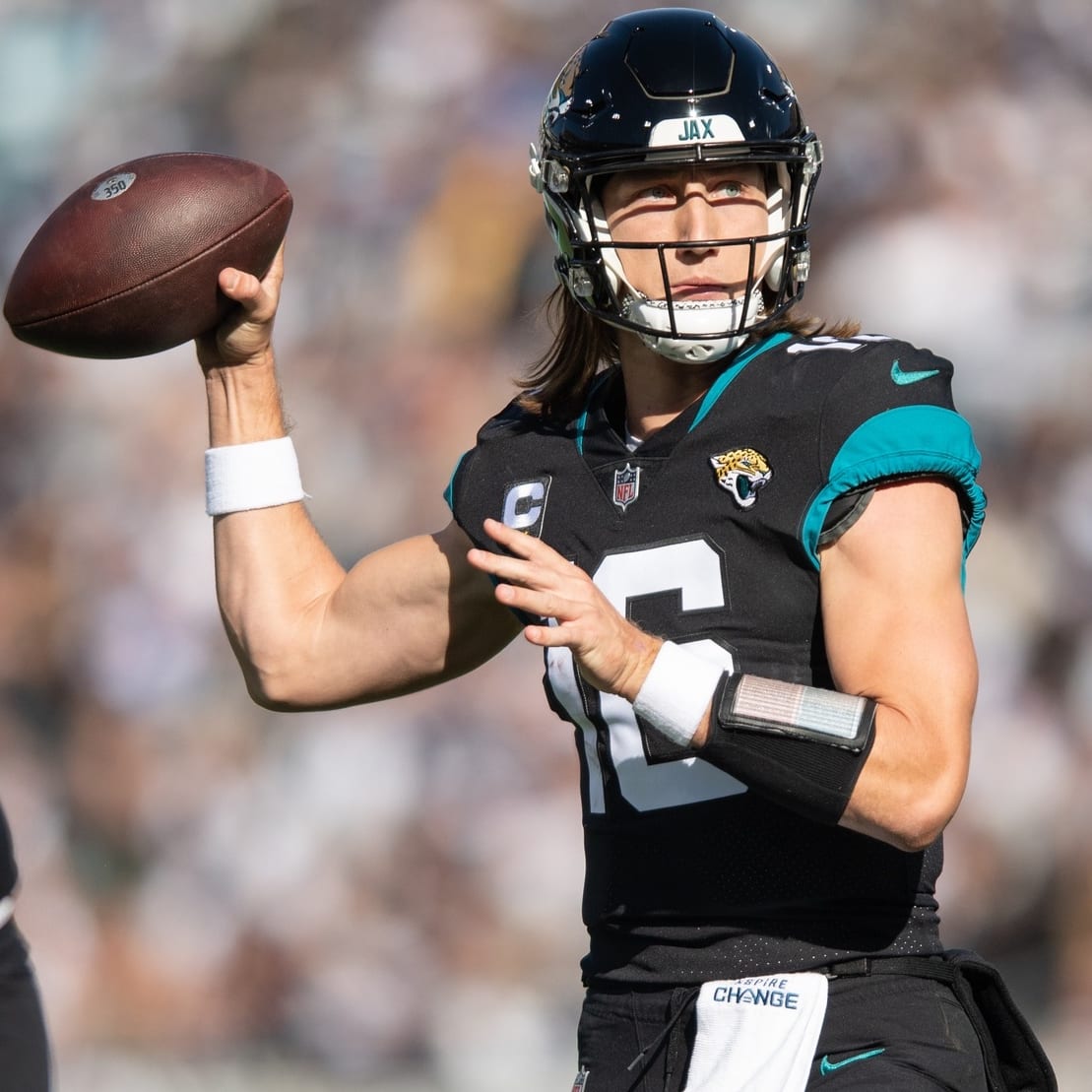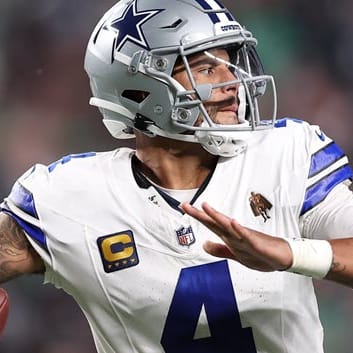My friends are mad at me.
In a span of 24 hours of last week, I managed to trade Jacksonville Jaguars' wide receiver Justin Blackmon in the two leagues that I owned him, securing the services of Ray Rice and Eddy Lacy, respectively, in return. On Thursday, I received several text messages from Blackmon's current owners containing a few choice words for me, most of which I can't reproduce here.
After sitting out the first four games of the season for violation of the NFL's Policy and Program for Substances of Abuse, it appeared that Blackmon was poised to secure his spot among the league's top players on offense. In the four games following his suspension, Blackmon hauled in a whopping 29 receptions for 415 yards, the third-most receiving yards in the league during that time frame. On Thursday, however, it all came crumbling down, as Blackmon was handed an "indefinite suspension" by the NFL for a violation of the league's substance-abuse policy, his second suspension in just over a six-month span.
The NFL has separate policies covering substance abuse and performance-enhancing drugs. The two policies differ in enforcement. In the PED policy, a positive test results in an immediate four-game ban. The substance-abuse policy, however, is somewhat more lenient. Under the NFL's substance abuse policy, the first positive test for a "substance of abuse"* results in the player formally entering an enhanced testing/treatment program (Stage One), where the player is tested more frequently. While I won't bore you
My friends are mad at me.
In a span of 24 hours of last week, I managed to trade Jacksonville Jaguars' wide receiver Justin Blackmon in the two leagues that I owned him, securing the services of Ray Rice and Eddy Lacy, respectively, in return. On Thursday, I received several text messages from Blackmon's current owners containing a few choice words for me, most of which I can't reproduce here.
After sitting out the first four games of the season for violation of the NFL's Policy and Program for Substances of Abuse, it appeared that Blackmon was poised to secure his spot among the league's top players on offense. In the four games following his suspension, Blackmon hauled in a whopping 29 receptions for 415 yards, the third-most receiving yards in the league during that time frame. On Thursday, however, it all came crumbling down, as Blackmon was handed an "indefinite suspension" by the NFL for a violation of the league's substance-abuse policy, his second suspension in just over a six-month span.
The NFL has separate policies covering substance abuse and performance-enhancing drugs. The two policies differ in enforcement. In the PED policy, a positive test results in an immediate four-game ban. The substance-abuse policy, however, is somewhat more lenient. Under the NFL's substance abuse policy, the first positive test for a "substance of abuse"* results in the player formally entering an enhanced testing/treatment program (Stage One), where the player is tested more frequently. While I won't bore you with the details, essentially, repeated failed tests or failure to comply with the league's "stages of intervention" - in which players are tested, evaluated, treated, and monitored for substance abuse – will eventually result in a four-game suspension.
*According to the policy, the NFL "prohibits players from the illegal use, possession, or distribution of drugs, including but not limited to cocaine; marijuana; opiates and opioids; methylenedioxymethamphetamine (MDMA); and phencyclidine (PCP). The abuse of prescription drugs, over-the-counter drugs, and alcohol is also prohibited."
It has been reported that Blackmon was in Stage Three of the league's substance-abuse program. In Stage Three, Blackmon was subject to unannounced testing up to 10 times a month. Continued positive tests or incompliance with the NFL's treatment programs while in Stage Three ordinarily results in a banishment with the ability to re-apply only after sitting out a minimum of one calendar year.
Blackmon, who had already served a four-game suspension at the start of the 2013 season, was operating on seriously thin ice. Remarkably, he still slipped up, and according to Jaguars general manager David Caldwell, Blackmon "must be held accountable and accept the consequences announced [November 1st] by the NFL." Yet, despite Blackmon's transgressions, it appears that he got off lightly. The eight-game suspension strongly suggests that the penalty was the result of a negotiation between the NFL and the NFLPA, as under the substance-abuse policy, he was to be banished for a minimum of one full year before he would be eligible for reinstatement. The union and/or Blackmon's representatives apparently persuaded the league to trim the return date in half.
Obviously Blackmon is droppable in all re-draft leagues. The chances of him returning to the field this season are zero as he cannot even be considered for reinstatement by the NFL until at least the beginning of next year. In the meantime, Jacksonville will need to find other players to step up for the suspended wideout. The brunt of that will fall on the team's leading receiver, Cecil Shorts, who has 46 receptions for 565 yards and one touchdown this season, and was the undisputed king of garbage time for the woeful Jags. According to the team's depth chart, rookie Ace Sanders will step in and start in place of Blackmon. Sanders has 16 receptions for 182 yards on the season. Mike Brown, Jacksonville's third-leading WR will also see an increase in targets. Brown, who is more of a slot receiver has 13 receptions for 226 yards and one touchdown this season.
Those in keeper leagues, however, have a much more difficult decision. Blackmon must remain clean throughout his suspension, since he remains subject to unannounced testing up to 10 times per month. Any further slip-ups will make it harder for him to secure reinstatement in 2014, and could potentially even end his NFL career. Additionally, Blackmon's unique contract stipulates that the Jaguars can release him without owing him another dime. While there's little reason to believe that the Jaguars would go as far as to cut Blackmon, it's certainly adds to the complications that owners in keeper leagues must consider this offseason as Blackmon's NFL future is very much hanging by a thread.
Blackmon has oodles of talent; that much is clear. The league, however, has proven unkind to those who are unable to get their act together. If you want an example, just take a look at Tennessee, where the Titans couldn't pay a team to take problem-child Kenny Britt off their hands at the trade deadline. Blackmon will have to regain the trust of not only the league, but his team as well if he hopes to build on the magnificent on-field start to his career. How this situation turns out, however, will depend solely on Blackmon.



































